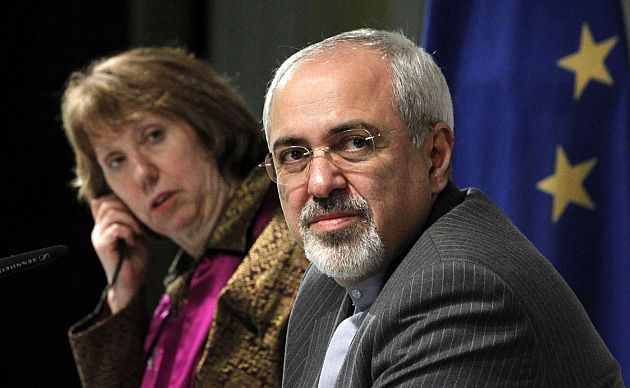Future of Nuclear Talks to Be Evaluated in Brussels

Foreign Minister Zarif is to meet with Catherine Ashton in Brussels this week. What is the significance of this meeting prior to the meetings set to take place on the sidelines of the UN General Assembly?
This meeting is along the lines of the diplomatic efforts of both sides in Vienna-5 which ultimately led to Vienna-6. Right now, these meetings are taking place to prepare the ground for the seventh round of negotiations. Catherine Ashton, as the representative of the P5+1 countries, will negotiate with Iran’s Foreign Minister to study the upcoming programs and find the shortcomings and differences and then, on that ground, plan for bilateral negotiations with some countries before the seventh round of negotiations. Furthermore, Mrs. Ashton will collect the viewpoints of the Iranian party after their assessment of Vienna-6 so that the seventh round of negotiations can be held on a realistic basis. Therefore, the meeting in Brussels will be held to coordinate the next round of negotiations.
Considering the fact that the EU Foreign Policy Chief will change in the future, is there any possibility that there would be a change in the path of negotiations between Iran and the EU Foreign Policy Chief?
In the developed countries, policies will not change when people change and the past trend will be maintained. The next person will take responsibility from one point and continue it with the same policies. Of course, people’s personal views are also effective but, in general, it is the outlook of the organization which is pursued. Thus, the change of the EU Foreign Policy Chief will not change the outlook of the EU and the P5+1 and their past policies will continue. If the outlook of the EU and the P5+1 is positive, then the person in charge will show its positive view. The approach of Mrs. Ashton was as positive as Mr. Solana. The next person will also have a positive approach in this regard.
Will this meeting help to remove the challenging points between Iran and the US?
Not directly. This meeting is not related to removing the challenging points between Iran and the US, because the differences between Iran and the US must be resolved between Tehran and Washington. Mrs. Ashton only plays the role of coordinator and not a policy-maker. Hence, the EU Foreign Policy Chief would only study the matter of which issue is related to the US and which issue is related to France, Britain or other countries so that Iran could hold bilateral meetings with them and resolve the issues.
Was there any possibility that the US representative could be present beside Mrs. Ashton in her meeting with Mr. Zarif in order to conclude the viewpoints of the US along with those of the Europeans?
The meeting in Brussels is only a coordinating meeting. But the meeting with the US is related to different issues. Therefore, the context of these two meetings is different. In the Brussels meeting, only the issues about which Iran and the US must discuss are recognized but the details of this meeting and reaching a conclusion would need separate meetings between Iran and the US.

